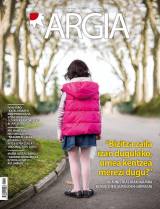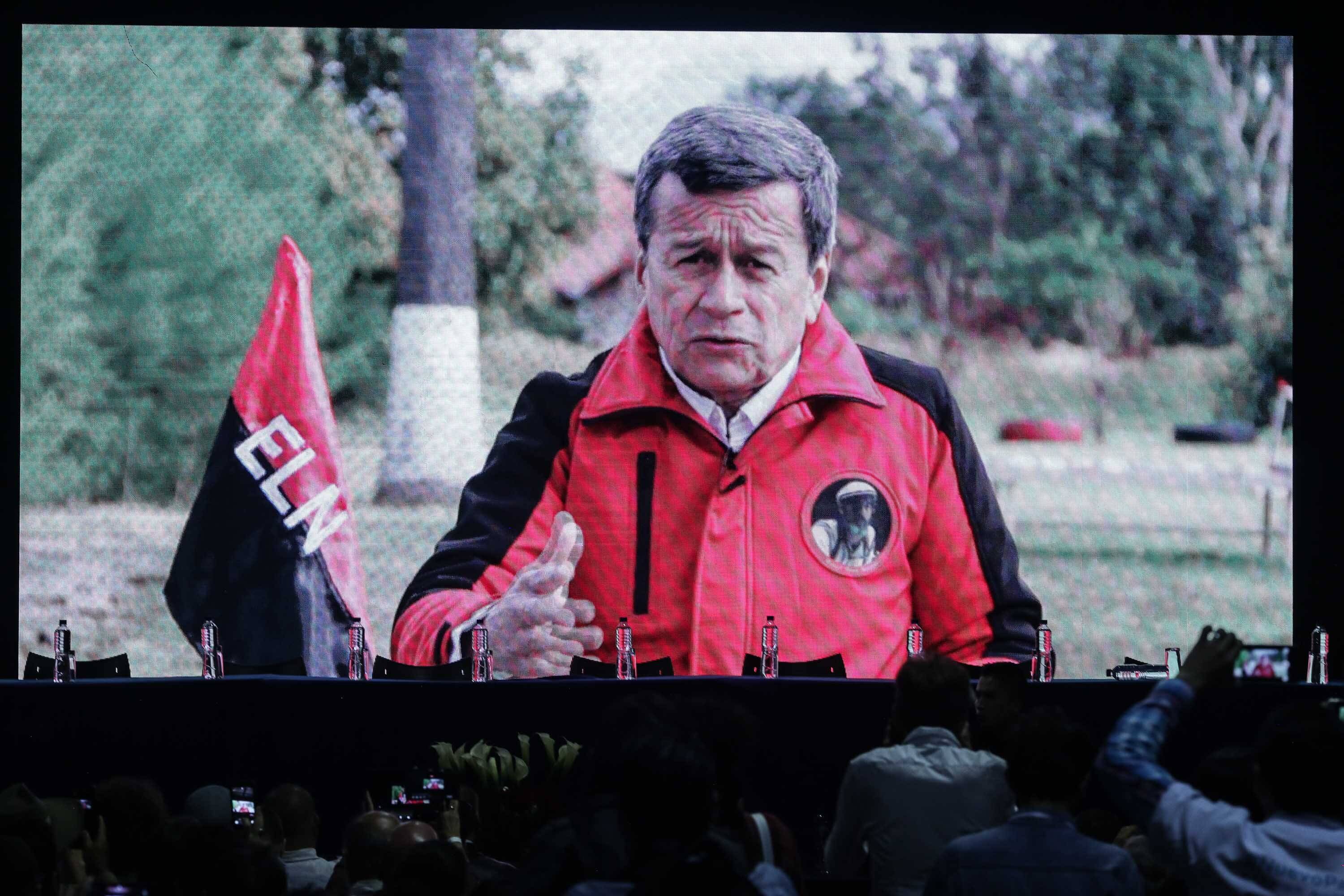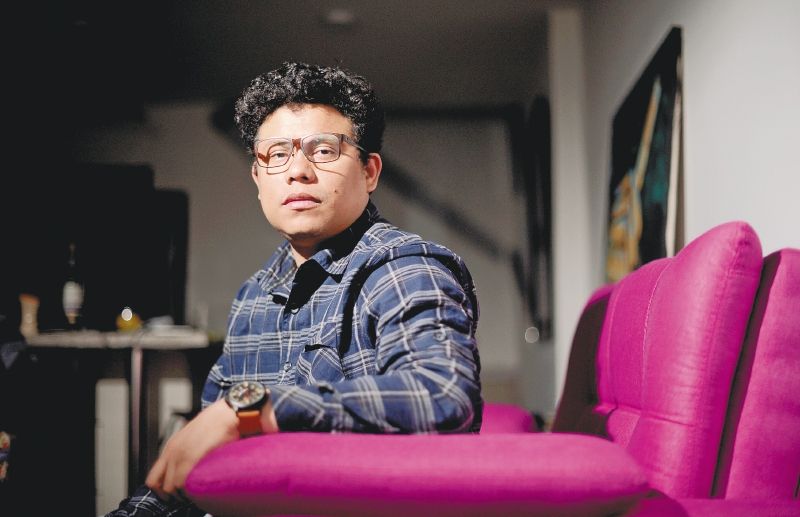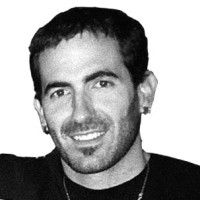"Talking about guerrillas is almost taboo in Colombia"
- 27 years ago his father was killed when he was 12, but it was not the end of the road, but the starting point of a long exile and distancing. In search of the truth, María José Pizarro, daughter of guerrilla leader M-19, Carlos Pizarro, returned to Colombia in 2010, becoming his father's main claim. María José is another of the protagonists of the documentary Pizarro, made by the director Simón Hernández, through which we will know the figure of his father. We have talked to him about the ups and downs of the peace processes at the time and today.

How did the Pizarro film project come about?
I had made an exhibition about my father in Barcelona in 2009, and then Simon Hernandez proposed to me to make a documentary about my search. I was looking for my father, I was connecting my life to the story of my homeland, I was tying the strings ... These were reflections made from exile, which I could not do in Colombia. I started doing interviews with my father's former colleagues and gradually became a more collective process that became more public starting in 2010. It all started coming out of an inner catharsis, trying to heal deep pains, all of this I experienced in my childhood, and I had to understand, what has happened to us, why my father was killed. The film is a conversation between my father and I that we could not have for his death. Through me appears my father, who is like two parts of the same story, we have formed a common thread.
What do you want to get with the movie?
Contributing to a diverse construction of memories, there can be no hegemonic story, a memory, a story, a voice. Our aim was to give a voice to other sectors that have somehow had no voice, in this case the armed revolt. This sector has not been able to speak and has suffered deeply from the consequences of the conflict. Talking about guerrillas is almost a taboo in the country, it has been very condemned, so it is very easy to stigmatize the other and justify his murder. We have to give the human face to that part of society that in Colombia other sectors have seen as an enemy, it is a way of contributing to reconciliation to promote the logic of dialogue. Furthermore, the aim is for the new generations to reflect on the events that they have not experienced so that they do not recur in the future.
“Our goal is to give a voice to a sector that has been in armed rebellion”
What memories do you have of your father? During the underground, what was their relationship?
Families live everyday moments, the father receives their children, gives them time... This has not happened in my case. I saw her in just a few moments, without predicting anything, and she was always transfigured, with hair dyed or mustache, and they were very short moments, but full of emotion, because he was a persecuted man. That is why I was bullied too, because for some sectors of the State I was a mass of war because I was the daughter of Carlos Pizarro.
Do you think that in the media a direct and complete picture of your father has been given?
There have been phases, it was totally condemned, then idealized, forgotten ... In this new stage, which I have promoted with great effort, we have managed to put the forgotten story at the heart of the current debate. It was now necessary because it has become a symbol of peace and rapprochement between the Colombians. Carlos Pizarro's thought can contribute a great deal in the current construction of peace.
He left the FARC and created another movement, guerrilla M-19. What were the keys to his political thinking?
He talked about very basic things, which are often understood without taking into account the political position that makes us enemies. He spoke of democracy in a broad sense and, although armed struggle is the most radical option, those of the M-19 were defined as “armed democracy.” They demanded plurality of voices, in Colombia we are mestizos, indigenous, black, European and American, according to the way in which we build our society. All these elements make up our society. They talked about “democratic capitalism”, that is, how we can make this more democratic and supportive without denying the existence of capital. They also spoke of the defence of nature, of the responsible role of the media, of solidarity between classes and of intercultural dialogue.
.jpg)
You left for lack of security, but after a few years in exile, you decided to come back at a given moment. What was your goal when you returned to Colombia?
At the time of Álvaro Uribe, a warrior language of radical attitude was imposed: the other cannot exist in the country. Once he abandoned power, there was an openness and some of us were able to return, we began to make forbidden reflections until then and it began to be a recognition of the victims, the debate began to spread to other sectors of society... Personally, my goal was to go home, meet with my mother and the people around me and reclaim moments that we couldn't share for years. Politically, from the point of view of my generation, we have been able to start contributing to the political debate, because I believe that our generation must have a leading role.
Your father chose to leave the guns and killed him. The same was true of the candidates from the Patriotic Union. Today, it seems that the same hands were behind it.
One of the tasks that the truth committee will have to set up under the latest agreements is to clarify who was at war and behind the murders of political leaders, who in many cases repeat the same names and apellidos.Al try under the conditions then to leave the arms and make a disarmed political opposition, did they make the right
choice?
I think so. Peace is never an easy choice, because it reveals great tension, and it seems like you're unarmed, unprotected. But despite the death of my father, the country won a great deal, one of the democratic constitutions of the continent, which was recognized by indigenous and Afro-Colombian peoples. What was most regrettable was the presence of radical sectors against the changes, even there they are, boosting the language and violence of the conflict. The dynamics of the war have not changed in Colombia and, unfortunately, after the death of his father came the crudest years of the war, total degradation, losing its values. The same sectors remain in the fight against change. Colombia won, of course, but I lost my father and Colombia lost some very prepared leaders who could contribute a lot in the democratic debate.
Have these other actors (paramilitaries, government) who were very strong at the time lost their strength in the context of the current process?
No. Unfortunately, proof of this is the 128 murders of social leaders that have occurred in the last year. The area abandoned by the FARC is being monitored by the security forces there. The peace process cannot flourish without the control of the paramilitary groups, without the acceptance that these murders are systematic, without the support of the new generations and the new political leaders.
The death of leftist leaders and candidates has been a tradition of long rope in Colombia since the 19th century.
Yes, the murder of impossible purchases, to avoid democratic debate, has been a great tragedy of the people, we have lost great leaders: Rafael Uribe, Elizar Gaitán.. It's constant in our history.
“The peace process in Colombia will not thrive if paramilitary groups are not controlled”
What difference do you see between the peace process of the then M-19 and the present FARC?
It is the time for human rights in the world and the latter has had a great international momentum that the M-19 did not have. The issues surrounding the creation of the armed movement are being discussed in the current peace process, and if the agreement progresses, the possibility of changing the country will open up. However, if this process had taken place 27 years ago, we would have saved a great deal of suffering. I am amazed that today the leaders of the FARC see some of the arguments that Carlos Pizarro gave them and that they themselves rejected as counter-revolutionaries. On the other hand, the process of demobilization of the M-19 paved the way for the demobilization of other movements in Colombia, El Salvador and Guatemala.
Despite international support and consensus, how does it interpret the indifference of Colombian society and the unexpected victory of no in the referendum?
He did not win the no by a large majority, and there was an astonishing abstention of 64%. The Christian churches have condemned the peace process, unfortunately, the Catholic Church favored the peace process, but then adopted a warm and regrettable position. The far right made a great effort for no, and the government failed to socialize the agreements.
Which of the words truth, justice and reconciliation are missing in Colombia?
All: we lack justice, because we have endemic impunity; we lack peace because we are at war, because the killings are not over. Perhaps what we lack the least is reconciliation, but that has to come from many sectors, not just the victims.
What scar has left the war on you?
There are many marks in the mind, I'm a woman of good humor, but also active, I'm not looking for me to sit in a comfortable posture. That brings personal sacrifices, because I am a mother of about 40 years old and would appreciate quiet life, but Colombia is not a quiet country, it is not easy, that is the painful heritage we have received. Our dream is that our children receive a different country and quiet is not the best option, we cannot let those who have killed us win. Memory and resistance have enabled us to observe with a critical attitude, to act with creativity and correction. We will never be like them.
2019an Ivan Duqueren Kolonbiako Gobernuak bake elkarrizketak apurtu arren, ELN erakundeko gerrilari talde batek bakegintzan lanean dihardu Kuban. Habanatik erantzun dizkigu galderak Askapen Nazionalerako Armadaren Komando Zentraleko kide eta negoziazio taldeko buru Pablo... [+]
Kolonbiako Gobernuak hartutako erabaki batek hautsak harrotu ditu berriki: Jorge Rodrigo Tovar aukeratu dute biktimen koordinatzaile kargurako, Jorge 40 ezizenez ezagutzen den buruzagi paramilitarraren semea. Haren agindupean torturatu eta hil zituzten biktimen familien samina... [+]
























